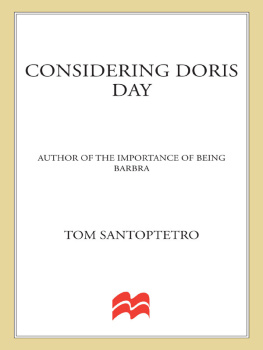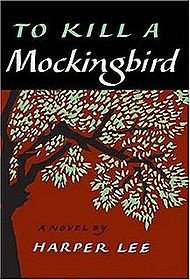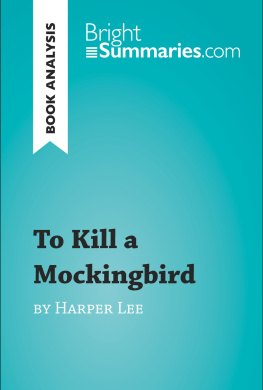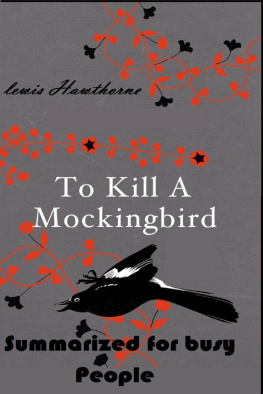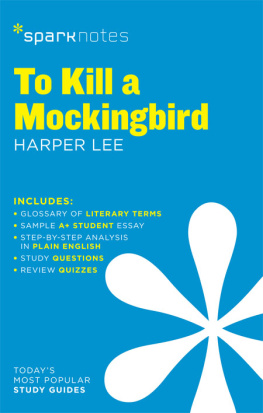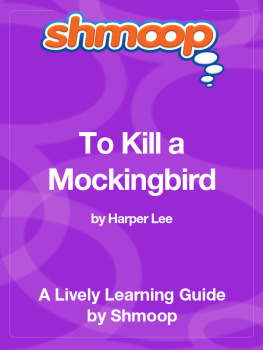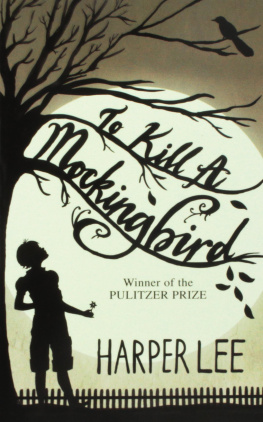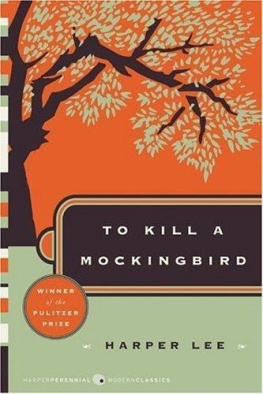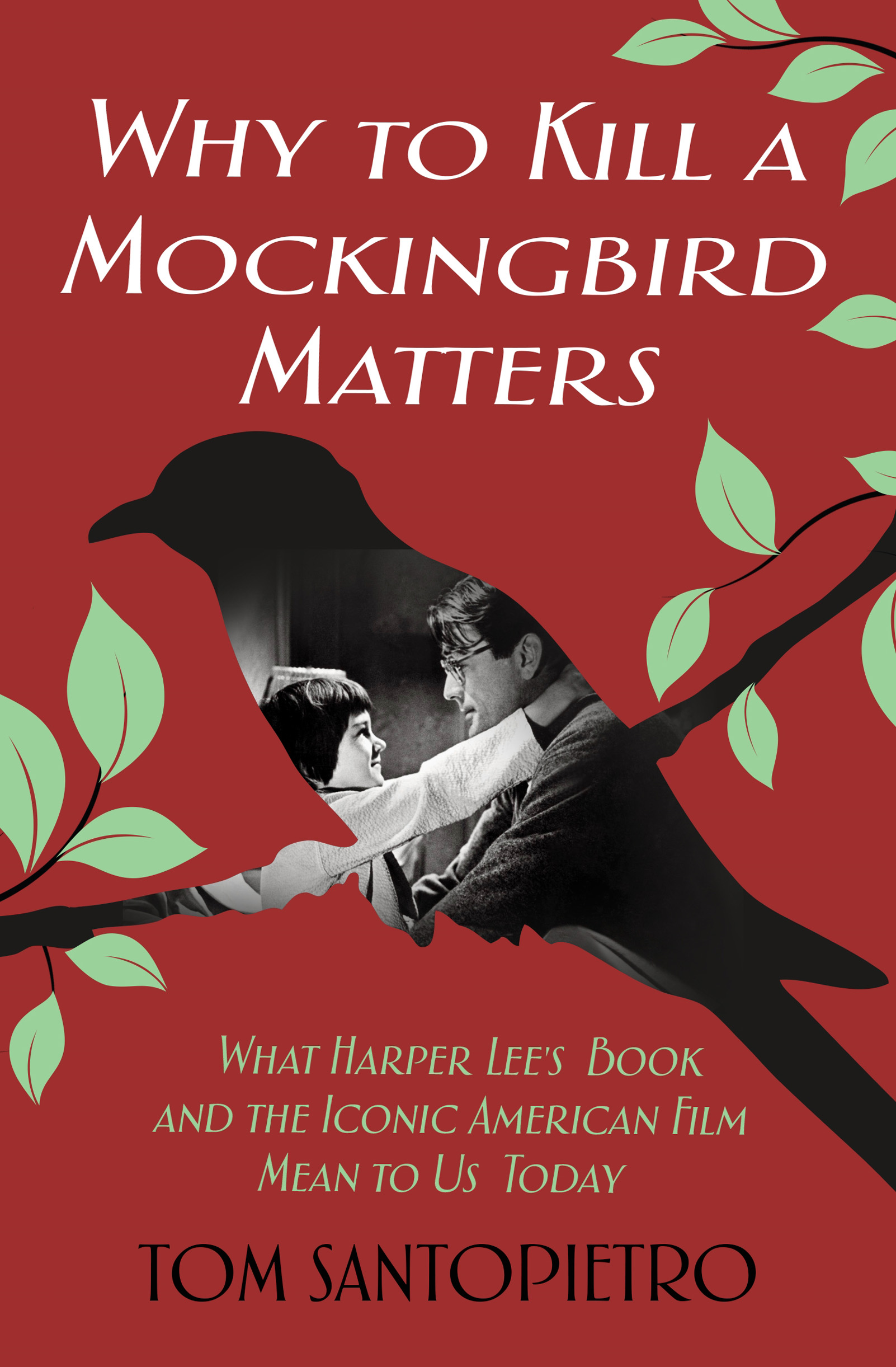Contents
Guide
Pagebreaks of the print version

The author and publisher have provided this e-book to you for your personal use only. You may not make this e-book publicly available in any way. Copyright infringement is against the law. If you believe the copy of this e-book you are reading infringes on the authors copyright, please notify the publisher at: us.macmillanusa.com/piracy.
For Sarah
My first thanks go to my agent, Malaga Baldi, and my editor, Michael Flamini. Their guidance and unwavering support proved to be of great help throughout all drafts of this book, and I feel fortunate to be in such good hands. Additional thanks go to editorial assistant Gwen Hawkes for her first-rate and prompt help with a multitude of details, as well as to publicist John Karle who has now done yeomans work in helping to spread the word on two of my books. A particular thanks, as well, to copy editor Carol Edwards, production editor Kevin Sweeney, production manager Joy Gannon, proofreader Deborah Friedman, marketing gurus Brant Janeway and Beatrice Jason, and foreign rights managers Marta Fleming and Chris Scheina. Special thanks to Omar Chapa for his striking design, and to Michael Storrings, for a beautiful dust jacket that is better than anything I could have imagined.
I want to acknowledge Charles J. Shieldss first-rate biography Mockingbird: A Portrait of Harper Lee, as well as his updated edition, Mockingbird: A Portrait of Harper Lee, from Scout to Go Set a Watchman. These remain the definitive biographies of Harper Lee and proved invaluable in providing background information on the reclusive author. Although his focus is on Harper Lees life even more than the implications of the Mockingbird phenomenon, his in-depth research provided fascinating and helpful material. As always with any of my books, a special thank-you to film historian/author/professor Jeanine Basinger, whose knowledge of film history remains without equal.
Boaty Boatwright proved extraordinarily generous with her time and detailed recollections of casting the Mockingbird film, and I thank her for a fascinating afternoon. Pulitzer Prizewinning author Diane McWhorter was equally generous with her insightful observations regarding Mockingbird , Harper Lee, and growing up in Alabama.
Finally, thank you to a terrific group of friends and colleagues whose support and encouragement during the past year have been very much appreciated: Cara and Mark Erickson; Doris Blum Gorelick; Rheba Flegelman and Steven Zweigbaum; Nina Skriloff and Dan Mirro; Beth and Alf Blitzer; Nola Safro; Mary Gates; Don and Anne Albino; Robert Albini; Katherine Aucoin; Ruth Mulhall; Mimi Lines; Kimberly Anne Kelley; Peter Pileski and Bob Avian; Bruce Klinger and Frank Shanbacker; David Jackson and Peter von Mayrhauser; Alan Markinson; Marlene Beasley; Steve Schnetzer; Abe and Caitlyn Abraham; Lynnette Barkley; Jan Heise; Joan Marcus and Adrian Bryan-Brown; Brig Berney; Steven Sorrentino; Bill Cannon; Tim and Karen Lernihan; Brooke Allen; Eric Comstock and Barbara Fasano; Anton and Almerinda Coppola; Virginia Wade; Mary Lou Mellace; Janet Strickland; Carol Strickland; Debbie Lamberti; Greg Galvin; Larry Katen and Philip Rinaldi; Mark Henry; Mary Breilid; Simon and Nancy Jones; Michael Lonergan; Michael Wilkie; Scott and Jill Glenn; Wayne and Betty McCormack; Steven Brooks; Parker Tricarico; Ara Marx; Lynn Goldman; Mark Schweppe; Tracey OShaughnessy; Gina Barreca; Wally Lamb; Adriana Trigiani; Michael Riedel; Denis Ferrara; Gary Packnick; Bob Siegel; Susan Ladner; Susie Cordon; Wayne and Pat Yankus; Dianne Trulock; Tony DeSare; and Dan Kaufman.
To Kill a Mockingbird is a great book now, it was a great book yesterday, and it will be a great book tomorrow.
James McBride, National Book Awardwinning author of The Good Lord Bird
To Kill a Mockingbird is the best of American literature because it tells us who we are, who we can be, and it paints the communities we lived in in vivid, truthful detail. I mean, if thats not art or our highest dreams for literature, for storytelling, I dont know what is.
Adriana Trigiani, novelist and filmmaker
The one thing that doesnt abide by majority rule is a persons conscience.
Atticus Finch in To Kill a Mockingbird
The two most important aspects of my fathers life were when he met my mother and when, in 1961, Alan Pakula and Bob Mulligan sent him the book To Kill a Mockingbird. That became the defining role of his career.
Cecilia Peck at the Academy of Motion Picture Arts and Sciences tribute to her father, Gregory Peck
On the late afternoon of April 8, 1963, exactly six days after the Reverend Dr. Martin Luther King, Jr., launched a new nonviolent campaign to end segregation in Birmingham, Alabama, and four days before the future Nobel Peace Prize winner was arrested for leading a protest march, Gregory Peck stood in front of his mirror, dressing for the thirty-fifth annual Academy Awards ceremony. Nominated as Best Actor for his role as attorney Atticus Finch in To Kill a Mockingbird, the just-released film based upon Harper Lees bestselling novel of the same name, Peck found himself at a once-in-a-lifetime juncture unusual even for a film star of his stature: Acclaimed by both critics and audiences for a role that managed to meld an already beloved fictional character with basic aspects of his own essential personality, he was starring in that rarest of films, one that had actually caught the zeitgeist.
To Kill a Mockingbird , it seemed, had tapped into a fervent national desire, at least outside of the Deep South, for a better, more egalitarian America, and, in the figure of Atticus Finch, presented a man Americans of every stripe wanted to believe reflected their own essential decency. It wasnt true, of courseno one outside of Gandhi himself actually possessed such rock-ribbed moral certaintybut that representational ideal had clearly and unequivocally begun to cast a longer and more powerful shadow with each passing week.
If, a scant seven months earlier, James Meredith, a twenty-eight-year-old black air force veteran, had tried to enroll at the University of Mississippi only to find the door blocked by Ross Barnett, the governor of Mississippi, and if, five days after that, Meredith arrived again, this time with 536 U.S. marshals as escorts/protection, then how and why had a slim novel and its small black-and-white film adaptation taken ahold of the national consciousness in a way few, if any, previous novels had managed? The furthest thing from epic, and the antithesis of Gone with the Wind s romanticized view of southern cavaliers and genteel ladies as guardians of civilization, Mockingbird s deceptively gentle, seemingly nostalgic evocation of a long-vanished southern childhood had ultimately proved nothing less than an indictment of the American character. Yet far from being put off, readers and viewers alike had embraced the material with a fervor that kept the novel at the top of the bestseller lists, floored Harper Lee, and infuriated several high-toned critics. What, exactly, had Harper Lee wrought?
For starters, a multigenerational national discussion of race in a way no onepublisher, author, and filmmakers alikehad ever anticipated. A discussion that seemed to gain, not lose, power with each passing week that Mockingbird continued to spend on the bestseller lists. A conversation that also slyly upended traditional notions of femininity, regionalism, and the very idea of what constitutes a real family. All this from a book that took Harper Lee the better part of a decade to write, found only one eager publisher, and initially elicited no interest from any of the major Hollywood studios.


